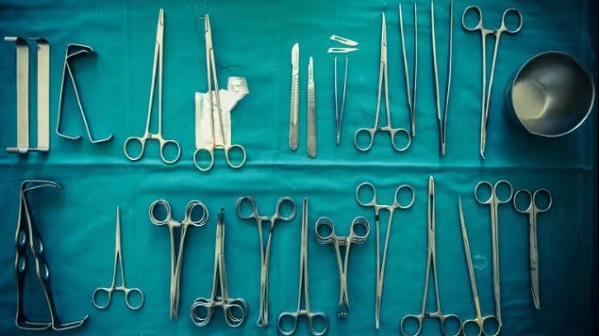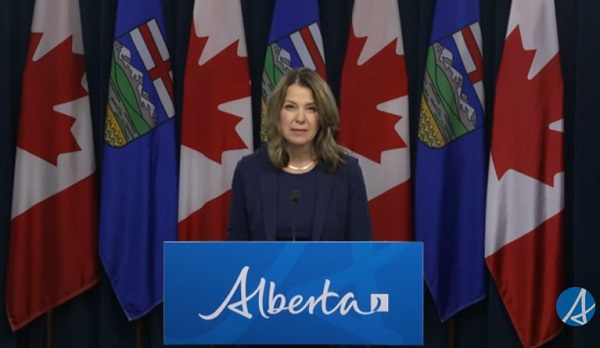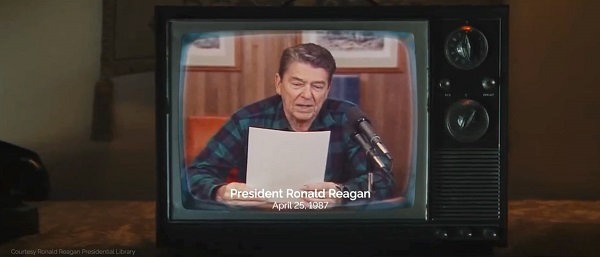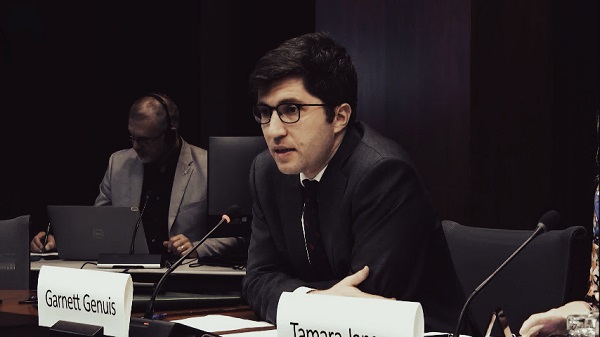MAiD
Disability rights panel calls out Canada, US states pushing euthanasia on sick patients

From LifeSiteNews
Physician-assisted suicide programs in the US and Canada are discriminating against patients with serious medical conditions according to a panel discussion at the Religion News Association.
Physician-assisted suicide programs in the United States and Canada are discriminating against patients with serious medical conditions even when their cases are not terminal, in many cases pushing to end their lives for financial reasons rather than medical.
Catholic News Agency reported that a panel of disability-rights advocates recently examined the landscape of the issue during the Religion News Association’s 2025 annual conference. During the panel, Patients Rights Action Fund (PRAF) executive director Matt Vallière accused state euthanasia programs of discriminating against patients with life-threatening conditions in violation of the Americans with Disabilities Act, noting that when a state will “will pay for every instance of assisted suicide” but not palliative care, “I don’t call that autonomy, I call that eugenics.”
Inclusion Canada CEO Krista Carr, meanwhile, discussed her organization’s lawsuit against the expansion of Canada’s medical assistance in dying (MAID) program to “people with an incurable disease or disability who are not dying, so they’re not at end of life and their death is not reasonably foreseeable.”
More astonishingly, she added, this “funded right” to lethal injection is slated to be expanded to mental illness in 2027.
“By setting out a timeline of three years, it’s an indication that the systems need to move towards readiness in two years. There’s the opportunity to do another review, and to assess the readiness of the system through a parliamentary process,” Health Minister Mark Holland said in February of the move, which Dying with Dignity Canada presents as a matter of “equality” for “those whose sole underlying condition is a mental illness.”
“It’s being called a choice,” but “it’s not a choice,” Carr said. Rather, these programs are pushing the “choice” on patients in “a desperate situation where they can’t get the support they need.”
As LifeSiteNews recently covered, the “most recent reports show that (medical assistance in dying) is the sixth highest cause of death in Canada. However, it was not listed as such in Statistics Canada’s top 10 leading causes of death from 2019 to 2022.”
In America, nine states plus the District of Columbia currently allow assisted suicide.
Support is available to talk those struggling with suicidal thoughts out of ending their lives. The American Suicide & Crisis Lifeline and the Canadian Suicide Crisis Helpline can both be reached by calling or texting 988.
Brownstone Institute
The Doctor Will Kill You Now

From the Brownstone Institute
Way back in the B.C. era (Before Covid), I taught Medical Humanities and Bioethics at an American medical school. One of my older colleagues – I’ll call him Dr. Quinlan – was a prominent member of the faculty and a nationally recognized proponent of physician-assisted suicide.
Dr. Quinlan was a very nice man. He was soft-spoken, friendly, and intelligent. He had originally become involved in the subject of physician-assisted suicide by accident, while trying to help a patient near the end of her life who was suffering terribly.
That particular clinical case, which Dr. Quinlan wrote up and published in a major medical journal, launched a second career of sorts for him, as he became a leading figure in the physician-assisted suicide movement. In fact, he was lead plaintiff in a challenge of New York’s then-prohibition against physician-assisted suicide.
The case eventually went all the way to the US Supreme Court, which added to his fame. As it happened, SCOTUS ruled 9-0 against him, definitively establishing that there is no “right to die” enshrined in the Constitution, and affirming that the state has a compelling interest to protect the vulnerable.
SCOTUS’s unanimous decision against Dr. Quinlan meant that his side had somehow pulled off the impressive feat of uniting Antonin Scalia, Ruth Bader Ginsberg, and all points in between against their cause. (I never quite saw how that added to his luster, but such is the Academy.)
At any rate, I once had a conversation with Dr. Quinlan about physician-assisted suicide. I told him that I opposed it ever becoming legal. I recall he calmly, pleasantly asked me why I felt that way.
First, I acknowledged that his formative case must have been very tough, and allowed that maybe, just maybe, he had done right in that exceptionally difficult situation. But as the legal saying goes, hard cases make bad law.
Second, as a clinical physician, I felt strongly that no patient should ever see their doctor and have to wonder if he was coming to help keep them alive or to kill them.
Finally, perhaps most importantly, there’s this thing called the slippery slope.
As I recall, he replied that he couldn’t imagine the slippery slope becoming a problem in a matter so profound as causing a patient’s death.
Well, maybe not with you personally, Dr. Quinlan, I thought. I said no more.
But having done my residency at a major liver transplant center in Boston, I had had more than enough experience with the rather slapdash ethics of the organ transplantation world. The opaque shuffling of patients up and down the transplant list, the endless and rather macabre scrounging for donors, and the nebulous, vaguely sinister concept of brain death had all unsettled me.
Prior to residency, I had attended medical school in Canada. In those days, the McGill University Faculty of Medicine was still almost Victorian in its ways: an old-school, stiff-upper-lip, Workaholics-Anonymous-chapter-house sort of place. The ethic was hard work, personal accountability for mistakes, and above all primum non nocere – first, do no harm.
Fast forward to today’s soft-core totalitarian state of Canada, the land of debanking and convicting peaceful protesters, persecuting honest physicians for speaking obvious truth, fining people $25,000 for hiking on their own property, and spitefully seeking to slaughter harmless animals precisely because they may hold unique medical and scientific value.
To all those offenses against liberty, morality, and basic decency, we must add Canada’s aggressive policy of legalizing, and, in fact, encouraging industrial-scale physician-assisted suicide. Under Canada’s Medical Assistance In Dying (MAiD) program, which has been in place only since 2016, physician-assisted suicide now accounts for a terrifying 4.7 percent of all deaths in Canada.
MAiD will be permitted for patients suffering from mental illness in Canada in 2027, putting it on par with the Netherlands, Belgium, and Switzerland.
To its credit, and unlike the Netherlands and Belgium, Canada does not allow minors to access MAiD. Not yet.
However, patients scheduled to be terminated via MAiD in Canada are actively recruited to have their organs harvested. In fact, MAiD accounts for 6 percent of all deceased organ donors in Canada.
In summary, in Canada, in less than 10 years, physician-assisted suicide has gone from illegal to both an epidemic cause of death and a highly successful organ-harvesting source for the organ transplantation industry.
Physician-assisted suicide has not slid down the slippery slope in Canada. It has thrown itself off the face of El Capitan.
And now, at long last, physician-assisted suicide may be coming to New York. It has passed the House and Senate, and just awaits the Governor’s signature. It seems that the 9-0 Supreme Court shellacking back in the day was just a bump in the road. The long march through the institutions, indeed.
For a brief period in Western history, roughly from the introduction of antibiotics until Covid, hospitals ceased to be a place one entered fully expecting to die. It appears that era is coming to an end.
Covid demonstrated that Western allopathic medicine has a dark, sadistic, anti-human side – fueled by 20th-century scientism and 21st-century technocratic globalism – to which it is increasingly turning. Physician-assisted suicide is a growing part of this death cult transformation. It should be fought at every step.
I have not seen Dr. Quinlan in years. I do not know how he might feel about my slippery slope argument today.
I still believe I was correct.
MAiD
Disabled Canadians increasingly under pressure to opt for euthanasia during routine doctor visits

From LifeSiteNews
Inclusion Canada reported to Parliament that disabled Canadians feeling pressure to choose assisted suicide is a ‘weekly’ occurrence due to MAiD expansion to the non-terminally ill.
Inclusion Canada CEO Krista Carr revealed that many disabled Canadians are being pressured to end their lives with euthanasia during routine medical appointments.
During an October 8 session of the Parliamentary Finance Committee, Carr, an advocate against Medical Assistance in Dying (MAiD), explained that Canada’s expansion of MAiD to the non-terminally ill has led to people with disabilities being pressured to end their lives during unrelated medical visits.
“Since the bill was brought in around Track 2 MAID … that has certainly changed people’s interactions with the healthcare system,” she explained, referring to the 2021 expansion that allowed those who are chronically ill but not terminally ill to be euthanized.
“People with disabilities are now very much afraid in many circumstances to show up in the health care system with regular health concerns, because often MAID is suggested as a solution to what is considered to be intolerable suffering,” she revealed.
WOW
“People with disabilities are now very much afraid in many circumstances to show up in the healthcare system with regular concerns. Often MAID is suggested as a solution.
“Since the bill was brought in around Track 2 MAID…that has certainly changed people’s interactions… pic.twitter.com/kjsVk8UbAK
— Garnett Genuis (@GarnettGenuis) October 16, 2025
Conservative Member of Parliament Garnett Genuis questioned how often people with disabilities are encouraged to have themselves euthanatized. Carr responded that this is a “weekly” occurrence for Canadians living with disabilities.
Carr warned that Canadians living with disabilities are disproportionately targeted by the MAiD expansion because their medical conditions leave them vulnerable to the euthanasia mindset within hospitals. Additionally, according to Carr, “poverty” is considered “intolerable suffering,” making a person eligible to receive MAiD.
Carr’s statement supports internal documents from Ontario doctors in 2024 that revealed Canadians are choosing euthanasia because of poverty and loneliness, not as a result of a terminal illness.
In one case, an Ontario doctor revealed that a middle-aged worker, whose ankle and back injuries had left him unable to work, felt that the government’s insufficient support was “leaving (him) with no choice but to pursue MAiD.”
Other cases included an obese woman who described herself as a “useless body taking up space,” which one doctor argued met the requirements for MAiD because obesity is “a medical condition which is indeed grievous and irremediable.”
Overall, 116 of Ontario’s 4,528 euthanasia deaths in 2023 involved non-terminal patients, with many of those killed from impoverished communities.
Data from Ontario’s chief coroner for 2023 revealed that over three-quarters of those euthanized when death wasn’t imminent required disability support before their death.
Similarly, nearly 29% of those killed when they were not terminally ill lived in the poorest parts of Ontario, and only 20% of the province’s general population lives in those areas.
At the same time, the Liberal government has worked to expand MAiD 13-fold since it was legalized, making it the fastest growing euthanasia program in the world.
Currently, wait times to receive care in Canada have increased to an average of 27.7 weeks, leading some Canadians to despair and opt for euthanasia instead of waiting for assistance. At the same time, sick and elderly Canadians who have refused to end their lives via MAiD have reported being called “selfish” by their providers.
The most recent reports show that MAiD is the sixth highest cause of death in Canada. However, it was not listed as such in Statistics Canada’s top 10 leading causes of death from 2019 to 2022.
Asked why MAiD was left off the list, the agency said that it records the illnesses that led Canadians to choose to end their lives via euthanasia, not the actual cause of death, as the primary cause of death.
According to Health Canada, 13,241 Canadians died by MAiD lethal injections in 2022, accounting for 4.1 percent of all deaths in the country that year, a 31.2 percent increase from 2021.
-

 Health2 days ago
Health2 days agoFor Anyone Planning on Getting or Mandating Others to Get an Influenza Vaccine (Flu Shot)
-

 Business2 days ago
Business2 days agoLiberals backtrack on bill banning large cash gifts, allowing police to search Canadians’ mail
-

 Sports2 days ago
Sports2 days ago‘We Follow The Money’: Kash Patel Says Alleged NBA Ties To Mafia Just ‘The Start’ Of FBI Investigation
-

 Alberta2 days ago
Alberta2 days agoPremier Smith moves to protect Alberta in International Agreements
-

 Business1 day ago
Business1 day ago‘TERMINATED’: Trump Ends Trade Talks With Canada Over Premier Ford’s Ronald Reagan Ad Against Tariffs
-

 Business2 days ago
Business2 days agoA Middle Finger to Carney’s Elbows Up
-

 Alberta6 hours ago
Alberta6 hours agoB.C. would benefit from new pipeline but bad policy stands in the way
-

 Business16 hours ago
Business16 hours agoTrump Admin Establishing Council To Make Buildings Beautiful Again



